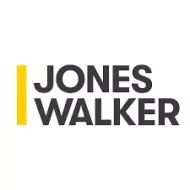- within Real Estate and Construction topic(s)
- in United States
- with readers working within the Business & Consumer Services and Pharmaceuticals & BioTech industries
- within Real Estate and Construction, Insurance, Government and Public Sector topic(s)
Modular construction is transforming the industry, tackling labor shortages, sustainability goals, and supply chain challenges, with the global market projected to reach $200 billion by 2030. Stephanie U. Eaton's recent article about residential modular construction highlights its speed and affordability for housing construction, offering a key perspective for home builders.
My prior, 2023 article about modular construction explored industrial and infrastructure applications, addressing risks like off-site fabrication and integration complexities. As discussed below, Engineering News-Record (ENR)has covered modular construction advancements and emphasized modular construction's pivotal role and the need for adaptive legal strategies.
Industrial Applications: High Stakes and Evolving Risks
My 2023 article noted that standard forms from ConsensusDocs and American Institute of Architects (AIA), while foundational, could be enhanced with provisions tailored for industrial modular projects, where unique challenges arise such as off-site inspections, final assembly complexities, industrial cleaning standards, supply chain disruptions, and hybrid goods-services transactions. These industrial projects carry elevated stakes and potential higher-dollar disputes compared to residential applications. For example, DFW Airport's Terminal F highlights how modular methods enabled scalability but required meticulous risk allocation to address logistical complexities (ENR, February 16, 2024).
Similarly, the $1.4-billion expansion at Atlanta's Hartsfield-Jackson International Airport blends modular and traditional stick-built methods, showcasing modular's growing prevalence in high-profile infrastructure (ENR, March 20, 2025). Innovations like 3D printing in controlled manufacturing environments boost efficiency and cut waste by up to 30% but introduce intellectual property concerns — a risk less common in residential builds. These examples illustrate modular's transformative potential in industrial settings yet underscore the need for contracts that address its distinct complexities.
Trends, Challenges, and Future Events
As modular construction gains traction, the industry must ensure contracts address its unique risks, from off-site fabrication to logistical complexities. ENR's 2025 reporting, including a new International Code Council modular standard (April 10, 2025), reflects modular's expanding role in industrial and commercial projects. The Modular Building Institute also highlights growth in multifamily and commercial sectors, fueled by automation and sustainable materials, aligning with both residential and industrial goals.
Yet, challenges like supply chain volatility and labor shortages persist, as noted in AGC's 2025 Outlook, with industrial projects facing additional hurdles in federal compliance. Upcoming events, such as World of Modular 2026 (Las Vegas, March 23-26, 2026) and DETAIL Modular Building Congress (September 2025, Stuttgart), will bring all interested stakeholders to explore AI integration, global standards, and cross-sector solutions, to address these shared challenges.
Advancing Contracts to Meet Modular's Industrial Challenges
The AIA's April 2025 Volumetric Modular Construction (VMC) documents, including A181-2025 and A281-2025, mark significant progress by clarifying off-site responsibilities, warranties, and integration risks, offering valuable support for industrial projects. And ConsensusDocs' 753 and 253 forms continue to provide a strong foundation for prefabricated projects, yet opportunities remain to further tailor provisions for industrial modular complexities, such as multi-jurisdictional compliance and logistical liabilities. For instance, ENR's January 16, 2025, article about a 2,800-ton modular furnace move illustrates the need for precise contract terms to manage transportation risks.
Recent regulatory and legal developments further underscore these gaps. The US Department of Housing and Urban Development (HUD) delayed its updated Manufactured Home Construction and Safety Standards to September 15, 2025, creating uncertainty for modular projects that intersect with manufactured housing regulations, particularly in defining compliance for off-site components used in industrial settings.
Similarly, the 2025 case Turan v. Union Modular Homes, LLC in New York highlighted disputes over payment and defect responsibilities in modular installations, emphasizing the need for clear contractual terms to address liability allocation and quality control across jurisdictions. These developments reinforce the importance of customized clauses — covering transport damage, jurisdictional compliance, and defect warranties — to align standard agreements with modular's unique demands in industrial contexts.
Conclusion
Modular construction's rise calls for collaborative legal agreements to address the gaps in the current form construction documents. Professionals should leverage the advancements in AIA's VMC documents and ConsensusDocs' forms as a starting point, supplementing them with customized clauses to address gaps in areas like off-site logistics, multi-jurisdictional compliance, and defect liabilities.
Higher Ed Ramps Up Modular Construction "Standardization and a factory-like quality control process could lead to fewer problems once buildings are put into service, a Suffolk executive says."
The content of this article is intended to provide a general guide to the subject matter. Specialist advice should be sought about your specific circumstances.


